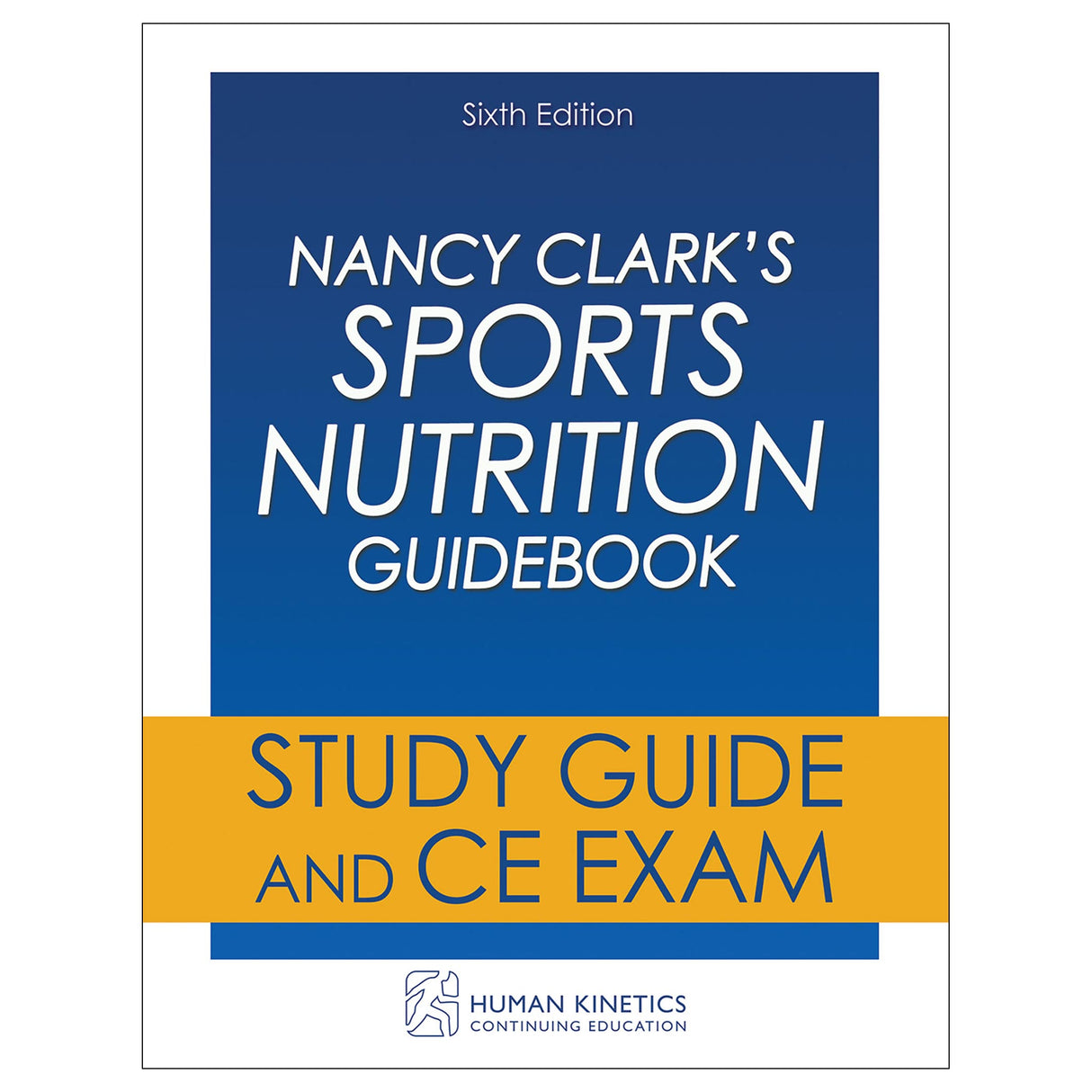Nancy Clark's Sports Nutrition Guidebook 6th Edition Online CE Course Without Book
Author: Human Kinetics
$69.95 CAD
Human Kinetics strongly recommends that you complete your exam within the calendar year of your date of purchase to ensure approved credits do not expire for your organization.
This package includes the following:
- Online study guide
- Recorded webinar
- Online continuing education exam
Once you pass the exam, you can print a certificate for continuing education credits.
Learning Objectives
- Identify the five categories of foods on the U.S. government’s MyPlate nutrition guide (www.ChooseMyPlate.gov), and describe a balanced meal or snack based on this guide.
- List at least four disease states that are less likely to develop when following a balanced sports nutrition plan.
- Name three examples of breakfasts that could be included in a balanced sports nutrition plan.
- Describe an appropriate eating schedule to allow an athlete to consume calories and nutrients at an even rate throughout the day.
- List high-energy, nutrient-dense foods that are easily included in the eating plan of a busy athlete or other active person.
- Identify the carbohydrate needs of an active person based on weight and describe a meal plan with sufficient carbohydrate.
- Determine daily protein needs, including what, when, and how much to eat to best meet those needs.
- Detail the negative effects of dehydration on performance and choose what quantity and types of beverages and foods to consume to promote adequate hydration before, during, and after exercise.
- Plan when and what to eat before exercise to prevent hypoglycemia, settle a nervous stomach, and fuel muscles for the most effective workouts, events, or competitions.
- Create a scientific fueling plan for both during and after exercise that will increase stamina, prevent cramping, and promote a quick and complete recovery.
- Decipher confusing nutrition information and make appropriate decisions about what kinds of supplements, performance enhancers, and engineered foods may be safe and effective.
- Identify and appropriately address nutrition-related issues affecting female athletes and active women throughout their life cycle.
- Plan athlete-specific nutrition guidance for athletes who are on teams, in power sports, in weight-class sports, or in ultraendurance or extreme sports; who compete in winter sports; or who are injured, older, or returning to exercise after gastric bypass surgery.
- Discuss methods for measuring body fat and address body weight, body fat, and body image issues for athletes.
- Identify the best nutrition guidelines for gaining weight as muscle mass, including protein requirements, boosting calories, and timing of meals and snacks.
- Explain the steps for losing body fat and maintaining weight loss in order to have energy to enjoy exercise and not feel deprived.
- Define, identify, and learn techniques to address eating disorders, food obsessions, and exercise addictions.
- List the benefits of beverage options for postworkout recovery.





